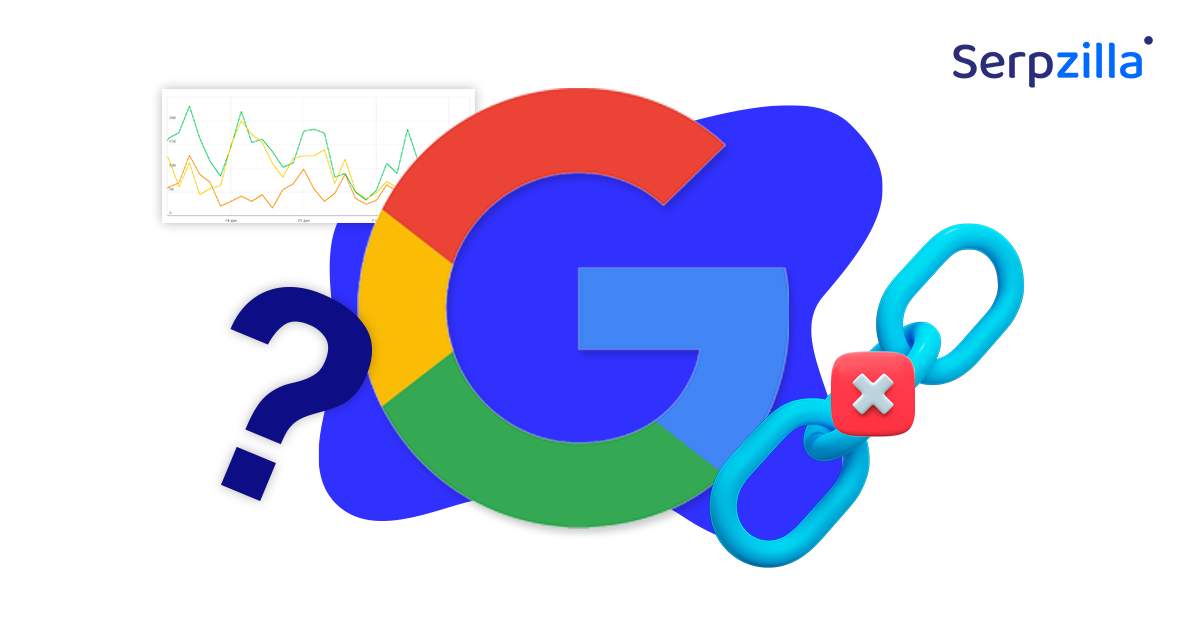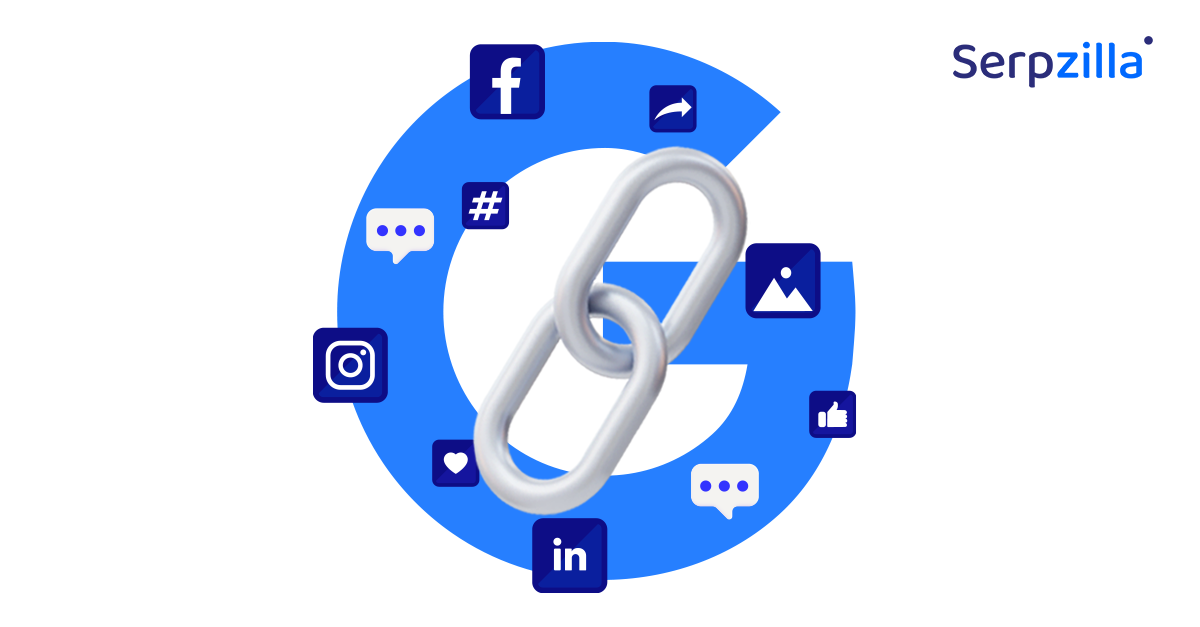Today, when a user goes online and searches for blogs on any topic, they will face such a huge and diverse selection, that it would take them ages to parse all of it. That is why, users usually tend to stick to the best blogs available to them in the most immediate results of the search. Alternatively, they choose blogs that they often come across while doing other internet activities. For example when a reputable source they frequent and trust links to this blog, or they often see it mentioned in their social network circles. The success of your blog often hinges not just on the quality of its content but also on this visibility to potential readers. Backlinks, or external links from other websites to your blog, are a crucial component of enhancing this visibility. Here’s why and how they matter.
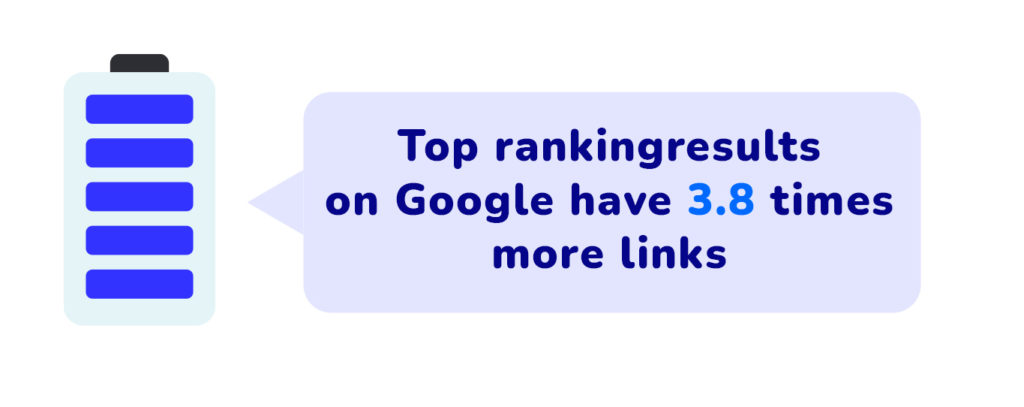
What Are External Links?
External links are hyperlinks that point from one web resource to another, as simple as that. In the context of your blog, they are all cases when a piece of content from your blog is linked to elsewhere. It could be a mention in a media article, a blog post, an answer in a reddit thread, etc. These are different from internal links, which connect pages within the same website. External links are valuable because they signal to search engines like Google that other sites consider your content credible and useful. Google uses the quantity and quality of your backlinks, among various other factors, to calculate your blog’s authority and ranking.
Types of Backlinks for Blog SEO
Generally, in terms of SEO, backlinks can be categorized based on how they are acquired:
Natural Backlinks
These are the gold standard of all backlinks, ideally, all your backlinks are best to be natural. Natural backlinks occur when other website owners link to your blog because they value your content and want to promote you for their audience. This type of backlink is earned without any direct action on the part of the blog owner.
Purchased Backlinks
Google’s policy for SEO discourages link purchasing, and indeed, buying links indiscriminately can do more harm than good. Purchased links are often deemed inauthentic by search engines and can lead to penalties that negatively affect your blog’s SEO, so any link purchasing should be done with great caution and awareness about the potential risks.
Reciprocal Links
This type involves a link exchange done as a result of a mutual agreement between two webmasters. In this case the sites willingly promote each other. Although common, this type of links should be used sparingly and strategically as excessive reciprocal linking can also raise red flags for search engines.
How Do Backlinks Affect Your Overall SEO Efforts?
Throughout this section, let’s explore strategies for post-SEO optimization, understanding the role of backlinks. Google changes the algorithm which helps it to rank websites in SERP quite often and uses a complex combination of factors for calculations. However, most SEO experts agree that a healthy, diverse backlink profile plays a significant role in improving your SERP performance. Good, reputable backlinks also pass a lot of link juice and improve your domain authority, as well as increase referral traffic and make search engines crawl your blog more often, indexing the new pages.
However, there are very many factors that help Google define whether a link is ‘good’ or ‘bad’. That is why link building, or the process of acquiring backlinks for a solid backlink profile, should be strategic and systemic. Proper link building strategy can dramatically improve your blog’s credibility and visibility. But when done wrong, it can cause serious harm to your blog or even ruin it altogether.
Getting Quality Links For Your Blog: How Is It Done?
Today, link building is a science in itself, so there are multiple strategies and combinations of tactics you can try and see what works better for your blog. Let’s take a closer look into some safe and working practices of acquiring quality backlinks.
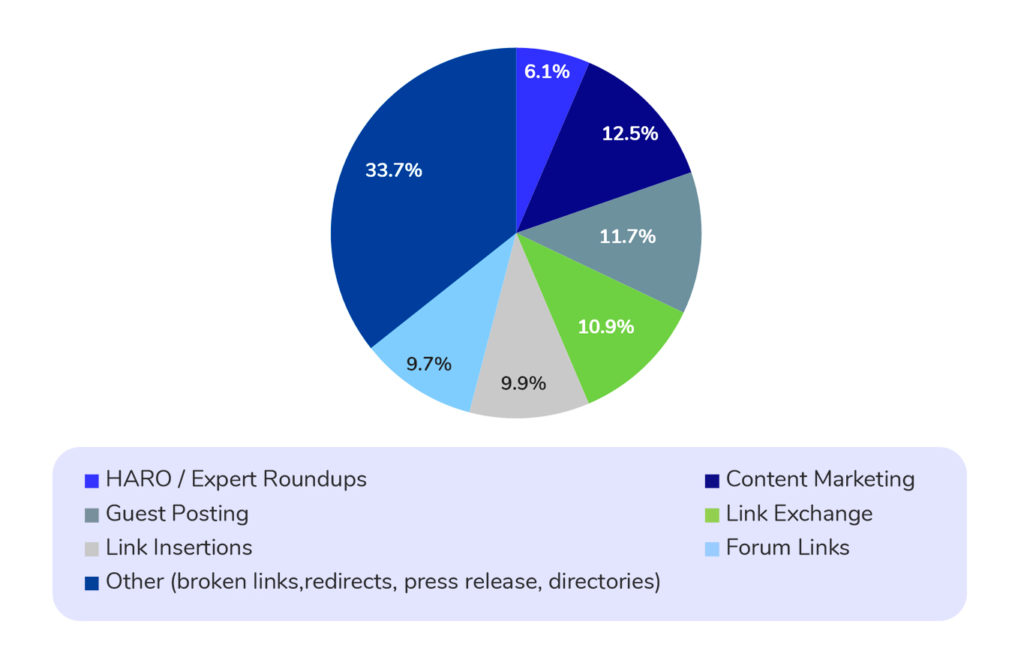
- Guest Posts
Blogging today is much more than simply keeping a blog. It’s about community, and for some, even lifestyle. Networking is crucial for gaining backlinks and improving your website’s visibility. Guest blogging can reap you many benefits: access to a new audience, increase in your DA and valuable backlinks. There are plenty of blogs who allow guest posting. Even if your blog topic is very niche, chances are, you will find resources to guest blog for. User relevant and high-authority websites so that the backlinks you get have the best effect. Guest posting opens new channels for communicating with your audiences and helps you to reach out to more people.
- Link Exchange
The general recommendation is to use this method sparingly. However, it can still add value to your link building strategy. Try to hand-pick the blogs you want to exchange links with and don’t overdo it. Exchanging links with partner blogs makes you more visible to their audiences.
- Improving Content Quality
Over the recent years, content marketing has taken a firm place among the top most important link building priorities. Your readers expect you to deliver something that is entertaining or useful and engaging and do it often. Audiences are becoming increasingly more jaded, so you have to constantly seek for new ways to improve and raise the bar for your content quality.
- Viral Content
Like we said, content marketing is one of the best methods to acquire natural backlinks. Of course, no matter how good your piece of content is, you cannot constantly produce viral posts. It does have a lot of hit-and-miss element: you never know for sure what will strike the chord with your audience. Constantly working on your content quality and releasing content on a regular basis increases the chances of your posts to go viral. Viral posts is something people tend to remember, create memes with, so it is one of the best ways to improve your visibility, to say nothing of gaining links.
- Social Media
Google doesn’t use social media signals for SERP rank algorithms. However, a continuous, engaging social media presence can do wonders for your blog and help you amass a lot of natural backlinks. It also helps you to reach out and interact with your audience and expand it.
Work Towards Backlink Diversity
Backlinks will only work for your visibility and not against it if your link building follows a certain set of practices. One of them is diversity: a natural backlink profile features links from all manner of websites. If your blog content is popular, it will be noticed equally by niche resources and more mainstream ones, by tiny outlets or individuals with a 100-followers twitter page and by large media. When you work on your link building, make sure your backlink profile has backlinks from sites with various DA, niche specifics. Mark your obviously paid links as nofollows. Regularly monitor and audit your profile to immediately spot anything remotely toxic and act to remove it.
Common Mistakes of Link Building That Will Decrease YourBlog Visibility
Navigating link building can be tricky. Here are a few practices you need to steer clear of in order for your efforts to work, not to spoil your SEO.
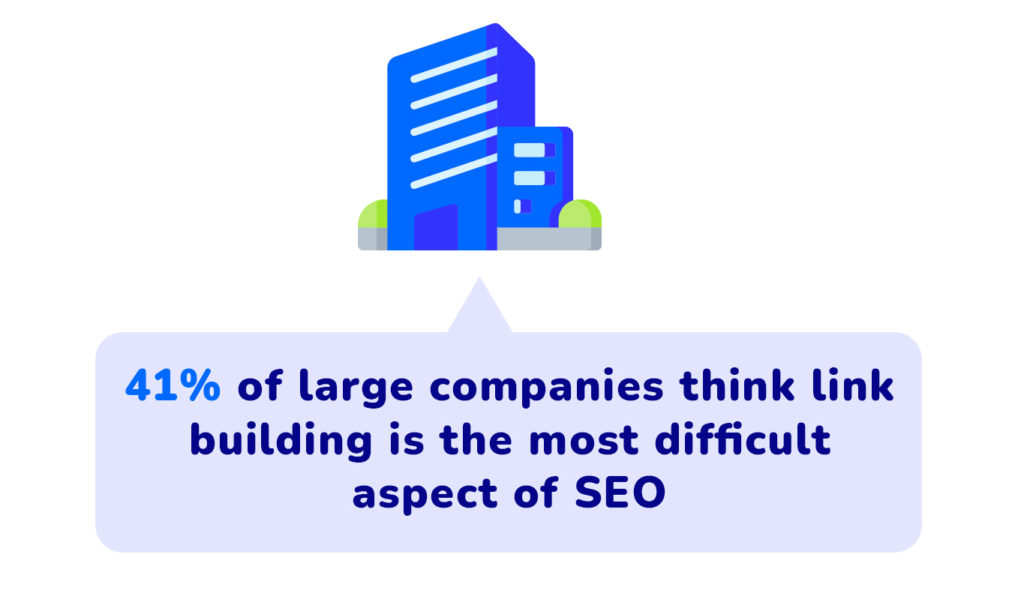
- Uneven Link Distribution
It can work both ways. If you rely on one source or even source type and your backlinks come from it predominantly, it can be a signal to search engines that you’re manipulating your backlinks. Vice versa, if all of your links lead to a few select blog entries or your main blog page, leaving out the majority of your content, it may also look artificial in the eyes of Google. Set to acquire links to different sources and make sure multiple entries in your blog get their share.
- Ignoring the Source Quality
Your sources may and should have varied domain authority, and it is actually a good practice, but always check the site quality. It shouldn’t be a spammy dumpster, it should be relatively healthy, without obsolete and abandoned pages and a ton of broken links. At best, a link from such a site will just add absolutely nothing to your efforts, but at worst, it could be considered toxic.
- Neglecting the Relevance of Linking Sites
Another vital factor your backlinks should have is relevance. There should be a very evident logic behind why this or that site links to you. The link itself should be well-placed and have appropriate context. Google doesn’t look well on links with little relevance and can even impose sanctions.
Boost your SEO results! Link building has become fast and easy with Serpzilla. Buy quality backlinks on authority websites with high DR.
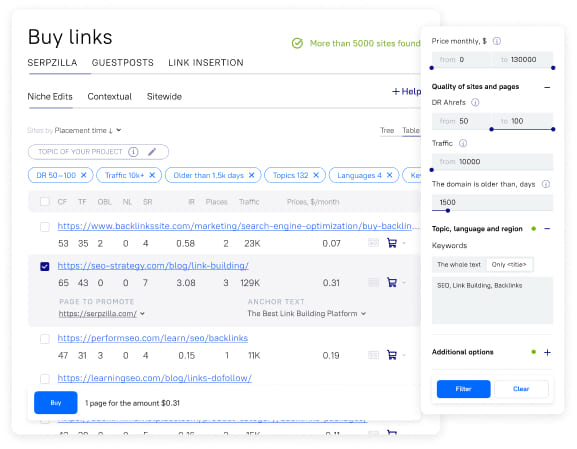
Conclusion
As you can see, backlinks still play a crucial role in how visible your blog is to your readers and potential followers. However, link building comes with a set of rules you need to follow to make your backlinks actually work for your visibility, not against it. Follow the best practices described above and avoid the common pitfalls to have your blog thrive and reach new audiences.



